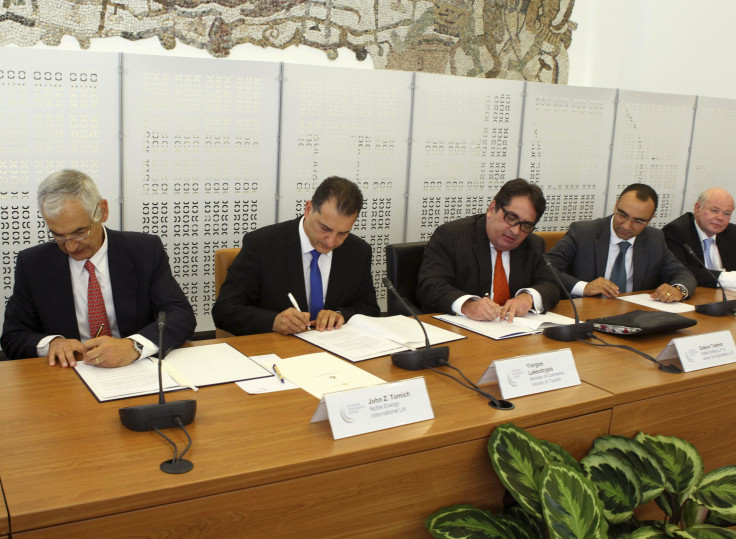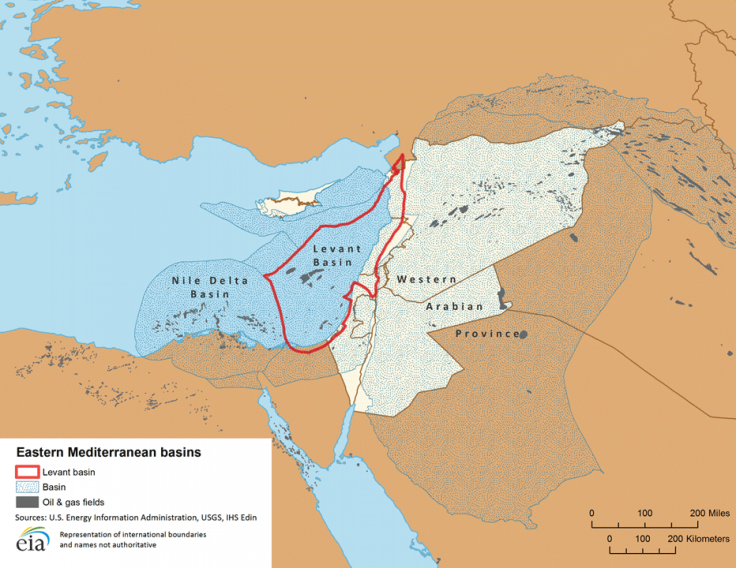Huge Natural Gas Fields In The Eastern Mediterranean are Set To Transform Cyprus Into European Energy Hub

Cyprus plans to become a regional hub in the Eastern Mediterranean Sea for the export of liquefied natural gas as the small island and its neighbors sit on huge offshore reserves, Cypriot officials say.
The nation's aspirations are driven by recent discoveries in the Levant Basin, a stretch of sea that extends from the coasts of Israel, Lebanon and Syria and is estimated to contain 122 trillion cubic feet of gas. 1 trillion cubic feet of natural gas is enough to meet the needs of 5 million households for 15 years, according to the American Gas Association.
Texas-based Noble Energy Inc. (NYSE:NBL) is the most active driller in the area and has already found large fields off Israel and Cyprus. Its Israeli discovery was the largest natural gas find in the last 10 years.
Israel and Cyprus are working together to iron out a plan to develop the vast discovery.

Plans for the project will require it to have the “flexibility to ship [natural gas] to the most lucrative markets, Asia or Europe,” a Cypriot government official said.
Currently Israel is debating how much natural gas it wants to export as well as how best to export it. It's also considering options to build its own LNG facility, but experts say the cost would be prohibitive, and therefore a Cypriot option would appeal to Israel. Alternatively, Israel could pipe its natural gas through Turkey to Europe, but shaky relations between the two countries make this scenario unlikely.
Cypriot Minister of Energy, Commerce, Industry and Tourism Yiorgos Lakkotrypis held high-level meetings in Washington this week where he briefed lawmakers, State Department officials and congressional staffers on Cyprus’s new role as a regional energy hub.
The EU's southernmost member, Cyprus is seen as an important location to help diversify Europe’s energy mix and lessen reliance on producers like Russia and Mideast suppliers. Furthermore, discussions about likely construction of plants to convert the LNG back into gas in countries like Croatia, Bulgaria and Greece have some suggesting those nations are potential customers for Cyprus and Israel.
Not wanting to miss an important regional opportunity, Turkey has been trying to assert itself in the Levant Basin following the discoveries off Israel and Cyprus's Greek, southern half.
"Israel cannot do whatever it wants in the Eastern Mediterranean. They will see what our decisions will be on this subject. Our navy attack ships can be there at any moment," Recep Tayyip Erdoğan, the often Israel-denouncing prime minister of Turkey, warned back in 2011.
In the wake of these tensions, Greek-backed Cyprus and Israel have formed an alliance based on mutual interest on the shared energy resource.
In Washington, Lakkotrypis met with the Congressional Hellenic-Israel Alliance discussing the importance of the countries' relationship. “The energy triangle formed by Israel, Cyprus and Greece represents the first Western, democratically controlled source of energy in the Middle East,” Endy Zemenides, the executive director of the Hellenic American Leadership Council, told International Business Times.
Zemenides echoed a theme that was discussed in the minister’s Washington meetings that given the ongoing civil strife in Syria, Egypt and Libya, the partnership between Cyprus, Greece and Israel is seen as “an arc of democracies that will serve as a bulwark against such instability.”
© Copyright IBTimes 2024. All rights reserved.












